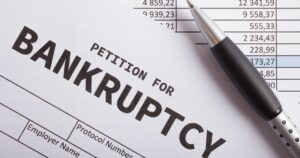Do you know the common bankruptcy myths? No one goes through life planning to file bankruptcy. Even those who know they need to file for bankruptcy have developed such a misguided view of this legal tool that they fear doing so. Bankruptcy is nothing to fear, and you should not give into the stigmas surrounding it either – especially when you are drowning in debt.
You hear a lot of myths regarding bankruptcy, and you cannot find solid answers online. Luckily, you can rest easy, because most of the myths you hear have no truth behind them.
To help put your mind to rest, here are some of the common bankruptcy myths – and the truth.
You Lose Everything if You File for Bankruptcy
A few decades ago, filing for bankruptcy meant starting over literally. You would lose your home, car, and everything you own. Today, consumer bankruptcy laws are friendlier. The courts do not punish you for your financial distress. Instead, they help you.
In most cases, you will not lose everything you own, and you may keep your home or car. A bankruptcy attorney can review your assets and help you hang onto them even if you need to file for bankruptcy.
You Can Discharge Every Debt You Have
Chapter 7 bankruptcy is the “eraser” bankruptcy. It does remove most of your debts, but not all those debts. A common myth out there lets consumers think that they can literally start over. While a lot of your debts can be discharged – meaning you do not have to pay for them anymore – some categories of debts cannot be discharged in any type of bankruptcy.
Debts that you cannot discharge include:
- State and Federal Taxes
- Child Support
- Alimony
- Student Loans
- Victim Restitution
- Fraud Convictions
Paying Off Debts is Better for Your Credit
Some people think that bankruptcy will ruin their credit forever and that if they work hard and pay off their debts, they will be better off. When you are so far into debt that you struggle to buy food, or pay for your house, you will not have the excess income to pay anything down. Instead, you pay the minimums, tack on more interest and fees, and stay in a never-ending debt payoff rotation forever.
If your debts total more than half of your annual income, and you cannot pay off those debts in a 5-year window, it is best to file bankruptcy instead of trying to pay them off.
You Will Never Have Credit if You File for Bankruptcy
This is untrue.
While your credit score does drop, you will eventually rebuild your credit, because you are not paying off debts for 10 years. In most cases, people who file bankruptcy and get back on their feet re-establish credit and have good scores in 5 years – and after 10 years, bankruptcy leaves your credit report and will not affect your score anymore.
Don’t Give in to the Myths – Consult a Bankruptcy Attorney
Do not believe the myths out there. If you feel that you are too far into debt to pay off your obligations, consult with a bankruptcy attorney. Our attorneys can help you decide if bankruptcy is right for you and assist you with the process. Contact us today for a no-obligation consultation.

